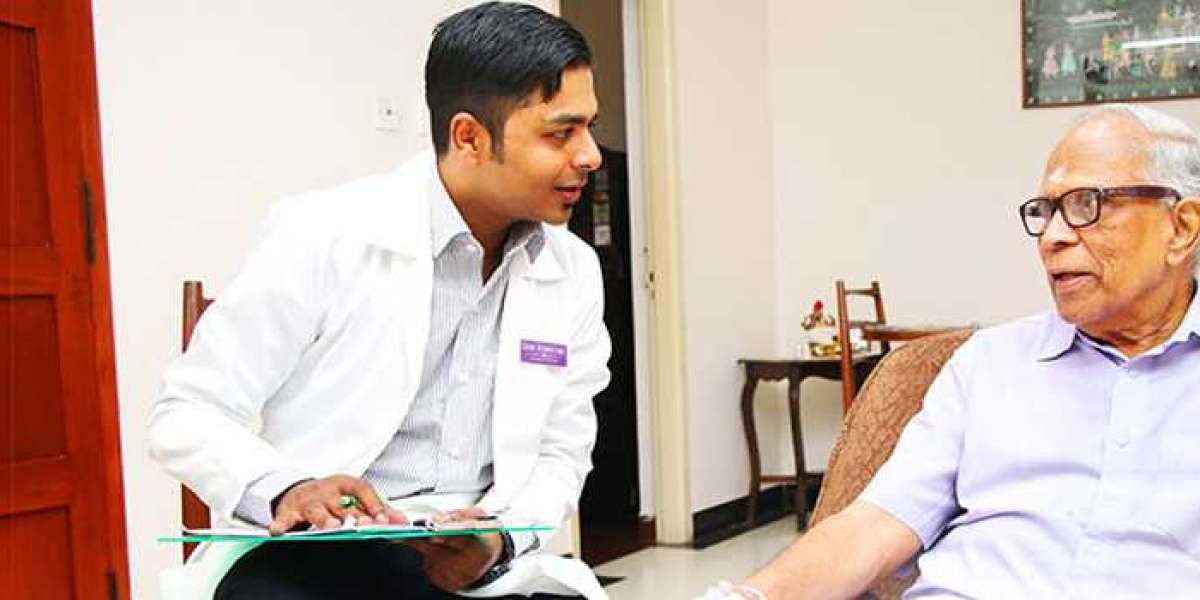In a bustling metropolis like Chennai, known for its rich culture, academic excellence, and professional opportunities, conversations about mental health are finally emerging from the shadows. While physical health has long been prioritized, the importance of emotional and psychological well-being is gaining recognition, particularly in urban settings where the pace of life can often become overwhelming.
If you’ve ever searched for a psychiatrist in Chennai, it likely means that you or someone close to you is navigating the complex terrain of mental health. Seeking help is a courageous and commendable step, and understanding what a psychiatrist does, how they can help, and what the journey typically involves can make the process far less daunting.
Who is a Psychiatrist?
A psychiatrist is a medical doctor specializing in the diagnosis, treatment, and prevention of mental, emotional, and behavioral disorders. Unlike psychologists, psychiatrists are licensed to prescribe medications, which can be essential in managing certain conditions such as depression, anxiety, schizophrenia, bipolar disorder, and others.
The approach of a psychiatrist combines the knowledge of neurobiology, psychopharmacology, and psychotherapy to offer holistic care. This means they are equipped to not only understand the psychological aspects of a problem but also the underlying biological factors that might be influencing a person’s mental health.
Why Chennai is Witnessing a Rise in Mental Health Awareness
Chennai, like many major Indian cities, is seeing a significant shift in the mental health landscape. With increasing awareness, educational outreach, and social media conversations, the stigma around mental health issues is slowly dissolving. More people are open to discussing stress, anxiety, burnout, and trauma — issues that previously went unspoken within families and communities.
This change is also being driven by lifestyle shifts. Competitive work environments, digital overload, academic pressure, family responsibilities, and urban isolation are contributing factors that have made people realize the importance of seeking professional mental health support.
A psychiatrist in Chennai today is not just someone you visit during a crisis. Many individuals are proactively reaching out to address early signs of emotional distress, just as one would consult a physician at the onset of physical symptoms.
The Journey of Seeking Help: What to Expect
Deciding to meet a psychiatrist can feel intimidating, especially if it's your first time. But demystifying the process can help ease the anxiety.
1. Initial Consultation
The first session is usually a detailed assessment where the psychiatrist gathers your medical history, lifestyle details, emotional challenges, and behavioral patterns. You may be asked questions about your sleep, appetite, relationships, career, and any symptoms you’re experiencing. The goal is to form a comprehensive understanding of your mental state.
It’s important to remember that this is a safe, non-judgmental space. The psychiatrist is trained to listen with empathy and to help you navigate what you’re experiencing without bias or assumptions.
2. Diagnosis and Treatment Plan
Once the assessment is complete, the psychiatrist may offer a diagnosis if one is appropriate. Based on this, a personalized treatment plan is recommended. This could include medication, psychotherapy, lifestyle changes, or a combination of these.
Some individuals may require short-term medication to stabilize certain symptoms, while others might benefit from long-term therapeutic work to manage chronic conditions. Every plan is customized to suit the individual’s needs and comfort.
3. Ongoing Support
Mental health treatment is rarely a one-time visit. Regular follow-ups help track progress, adjust medication if needed, and address new concerns that may arise. In many cases, the psychiatrist may work in collaboration with psychologists, therapists, or counselors to provide integrated care.
This ongoing relationship fosters trust, allowing for deeper therapeutic work over time.
When Should You See a Psychiatrist?
There is no “perfect” time to consult a psychiatrist, but certain signs should never be ignored. These include:
- Persistent sadness, anxiety, or emotional numbness
- Sudden changes in behavior, sleep, or appetite
- Difficulty focusing or making decisions
- Feelings of hopelessness or thoughts of self-harm
- Panic attacks or uncontrollable fears
- Unexplained physical symptoms like fatigue or aches that don’t have a medical cause
- Traumatic experiences that continue to affect your daily life
- Dependency on substances like alcohol or medication
Even if your symptoms seem mild or manageable, talking to a professional can offer clarity and tools to prevent worsening.
Psychiatry Beyond Medication
One common misconception is that psychiatrists only prescribe pills. While medication can be life-saving in some scenarios, psychiatrists also focus on behavioral change, psychoeducation, and coping strategies. The best psychiatrists prioritize understanding the person as a whole — body, mind, and context — rather than simply treating isolated symptoms.
They might suggest journaling, breathing techniques, structured routines, or referrals for therapy to supplement medication. Increasingly, psychiatrists in Chennai are adopting an integrative approach, recognizing the role of diet, sleep, mindfulness, and physical activity in promoting emotional resilience.
Cultural Sensitivity and Trust
Chennai’s cultural fabric is unique — a blend of tradition and modernity. A good psychiatrist in the city understands this balance and approaches treatment with cultural sensitivity. They respect familial dynamics, social expectations, and individual value systems while encouraging open, constructive dialogue.
Building a therapeutic alliance based on trust and confidentiality is at the heart of psychiatric care. The more comfortable you feel opening up, the more effective the treatment can be.
Mental Health for All Ages
Psychiatric care isn’t restricted to adults. Children, teenagers, and the elderly have their own emotional challenges that require specialized support. Pediatric psychiatry deals with developmental issues, learning difficulties, behavioral problems, and emotional regulation in younger age groups. Geriatric psychiatry, on the other hand, addresses age-related conditions such as dementia, depression due to loss or isolation, and medication-related concerns.
In Chennai, psychiatrists trained across different age groups are available, making it easier for families to access age-appropriate care.
Breaking the Silence, One Conversation at a Time
The decision to look up a psychiatrist in Chennai is often the result of silent battles — moments of internal conflict, sleepless nights, feelings of overwhelm. But it also marks the beginning of healing. The more we normalize mental health conversations, the easier it becomes for individuals to seek help without fear of judgment.
Whether you are a working professional juggling deadlines, a student facing academic pressure, a parent concerned about your child’s wellbeing, or someone simply feeling "off" — know that help is available.
Final Thoughts
Mental health is a vital part of our overall well-being. In a city where changes and tradition coexist, finding a psychiatrist in Chennai who understands both the clinical and cultural context is essential. You are not alone in your journey. The right support, at the right time, can make all the difference. By taking that first step toward a consultation, you’re already moving toward clarity, healing, and empowerment.







